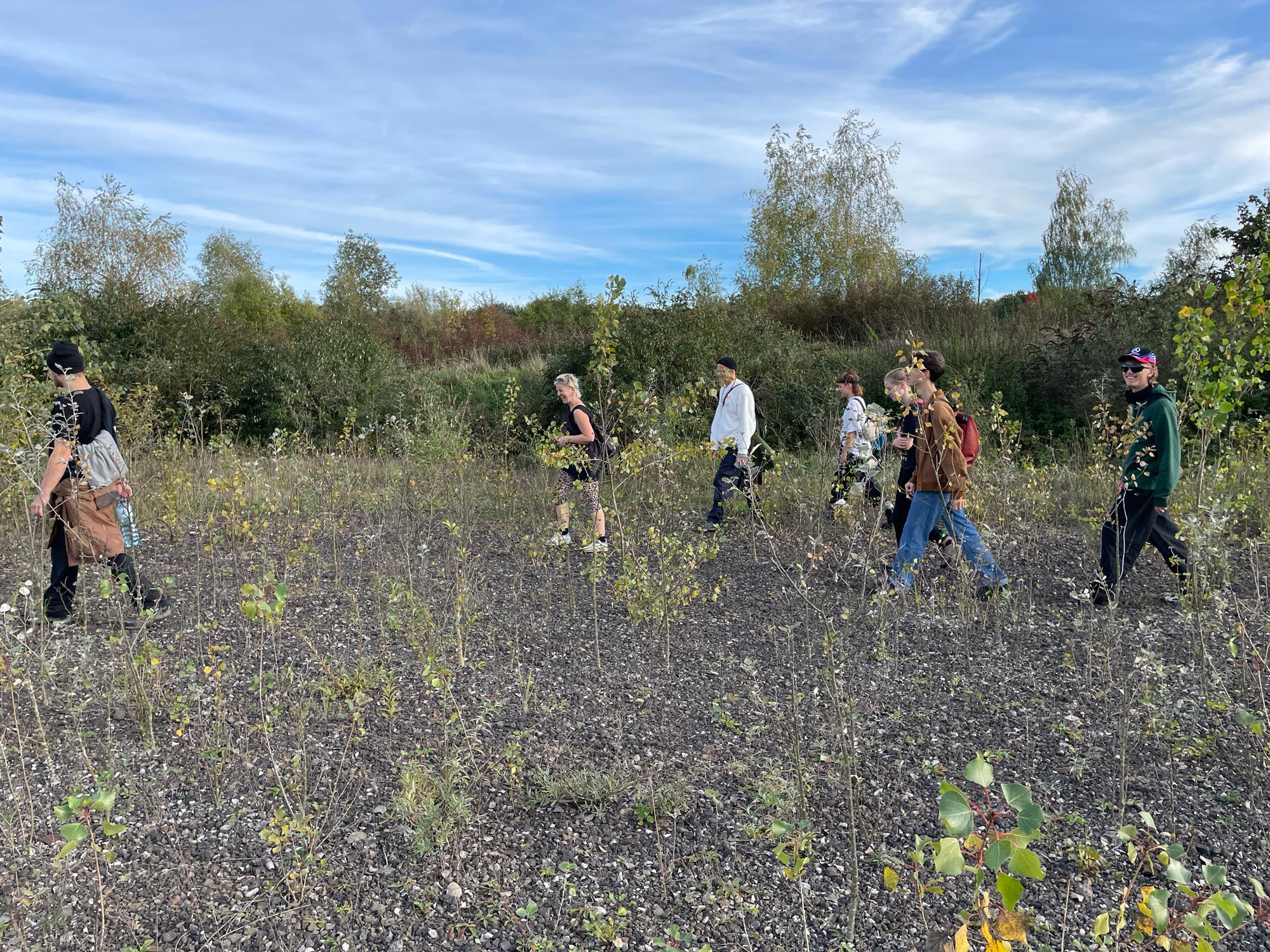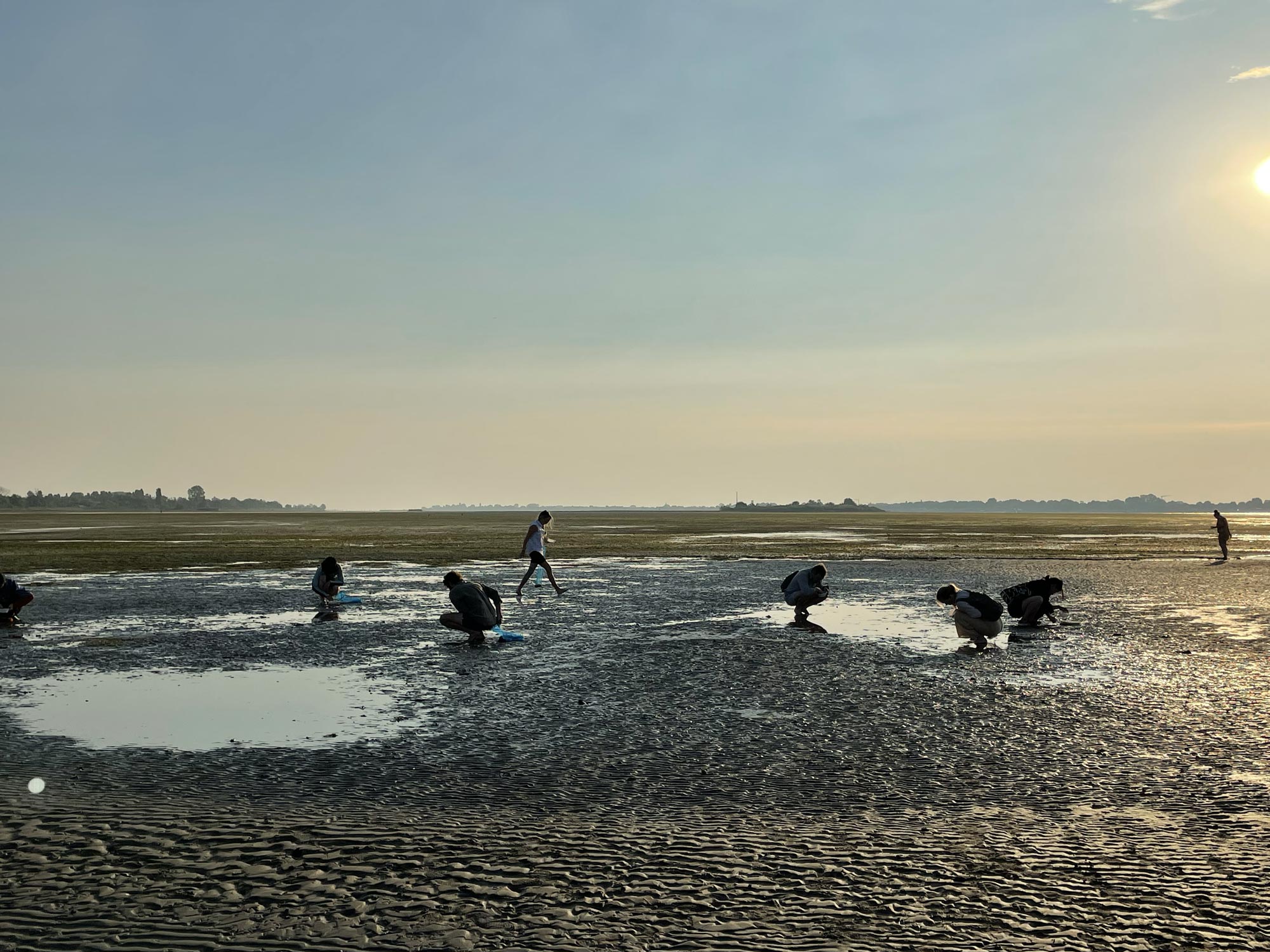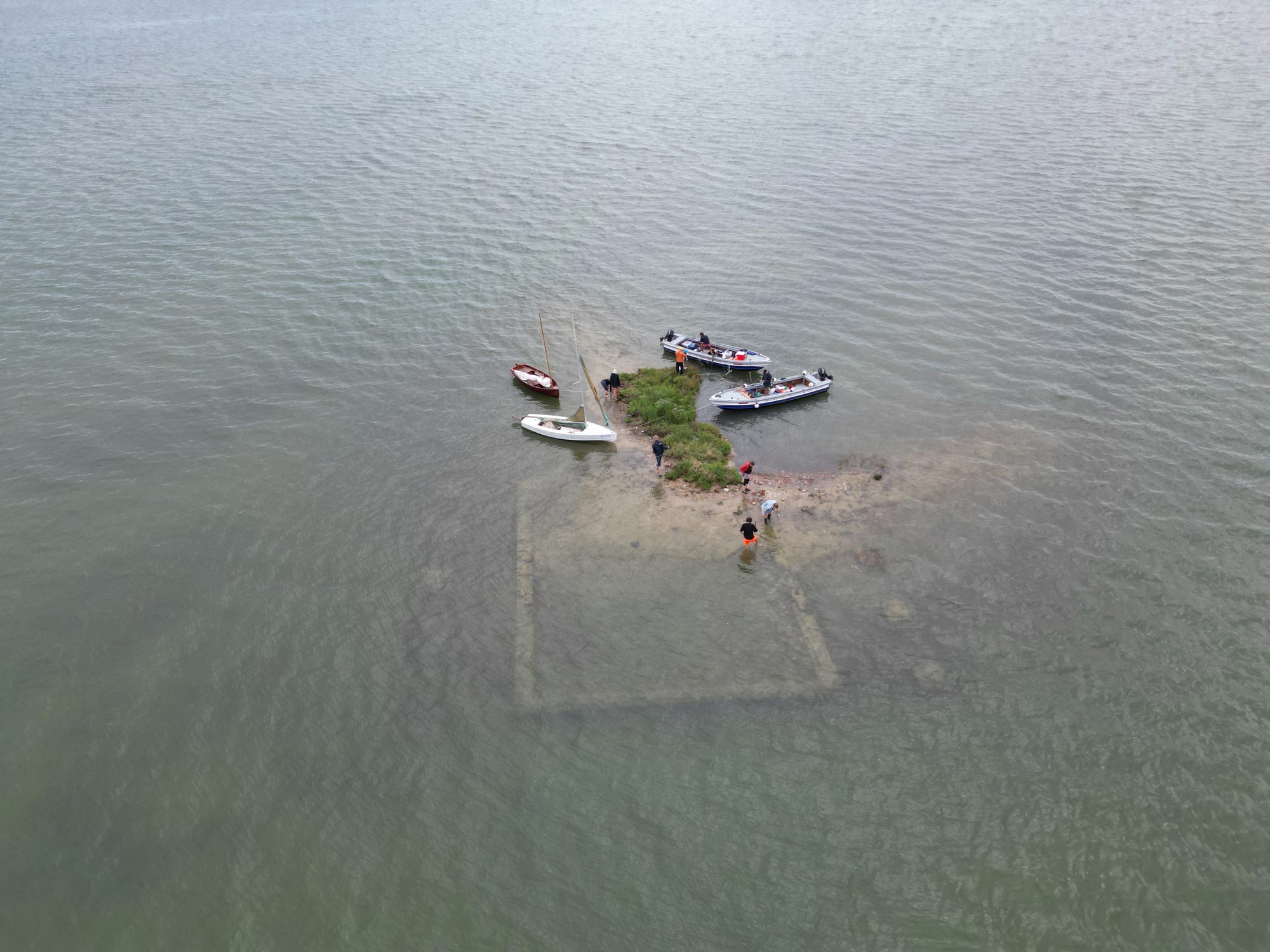
StadtLabor
Linz
is an action-research project developed within the Department of space&designstrategies. For the academic year 2025–26, the ZentraleFach of the Bachelor programme will take the form of an action-research project situated in Frankviertel, a public housing district in Linz. The neighbourhood becomes the pedagogical laboratory in which students acquire tools and methods.
The experience is conceived as experimental in nature, positioned at the intersection of teaching, research, and local action. StadtLaborLinz aims to shift away from traditional teaching practices towards new forms of learning and pedagogy based on territorial proximity, attentive listening, dialogue, co-production of knowledge with local actors, and interdisciplinarity.
Grounded Learning
Students strengthen their proximity to the context, not only as critical observers but as participants in everyday community life. Their presence in a marginal setting offers opportunities to broaden and deepen personal relationships with residents and local actors.
Interactive Learning
The creation of live teaching environments and the organisation of multi-stakeholder debates form the core of action learning. The process is rooted in immersive field experiences and in the development of horizontal learning environments. Knowledge, always local and specific, emerges through collective inquiry leading to shared interpretations.
Action-Oriented Learning
A process in which students, teachers, and local partners share learning experiences by working together on projects for a specific community.
Co-design and engagement
An approach based on listening, dialogue, and co-production of new knowledge, practices, and projects in close collaboration with residents and neighbourhood associations.
Emerging Environments — Studio Venice

Grounding artistic research in sites and communities. Emerging Environments is a research program that investigates the evolving relationships between humans and more-than-humans within transforming ecosystems. With a particular focus on Venice, it explores how urban spaces interact with natural environments, challenging anthropocentric approaches to artistic research and design. The concept of emergence, borrowed from complex systems theory, serves as a tool to understand change not as the linear effect of single causes, but as the outcome of small, intertwined interdependencies. Here, Jacques Derrida’s distinction between futureand avenir becomes relevant: the future as predictable and programmable, versus the avenir as the unforeseeable and unexpected. Emerging environments are thus conceived as spaces shaped by the avenir, where unpredictability and coexistence between human and more-than-human systems open possibilities for ethical and ecological innovation.
Within this theoretical framework lies Studio Venice, a course conceived as a critical tool to engage with the uniqueness of Venice and its lagoon—a fragile and contradictory paradigm at the crossroads of climate change, global tourism, and cultural economies. Venice and its lagoon are approached as material and narrative sites of knowledge, where learning occurs through situated artistic research practices, intertwining art and space, experimenting with forms of cohabitation, and constructing alternative imaginaries.
The experience unfolds along three main dimensions:
- Exploring the Venice Lagoon, one of the world’s most vulnerable ecosystems in the face of climate change, recognizing historic practices of coexistence and adaptation across species, while questioning the uncertain effects of large-scale environmental interventions.
- Re-activating Venice’s abandoned patrimony and forgotten institutions of care, hospitality, and exchange through reuse practices. The group will be hosted in a former warehouse in the city center, a space under transformation that BUrb has initiated as an international hub between arts and architecture, bringing together artists, researchers, and local actors.
- Developing alternative narratives that challenge dominant discourses on Venice and its lagoon, foregrounding overlooked voices, practices of care, and multispecies relations, in order to imagine new ways of inhabiting fragile and contested environments.
The methodological approach combines situated learning (living within the community as active participants), action-oriented learning (students, teachers, and local partners collaborating on site-specific projects), and interactive learning (immersive field experiences and horizontal modes of knowledge exchange). Knowledge emerges as local, specific, and shared, the result of collaborative exploration and collective interpretation.
STEP — Strategies for Transformative Education for art in Public spaces

STEP (Strategies for Transformative Education for art in Public spaces) is among the winners of the “Cooperative Partnerships in Higher Education – 2025” selection!
STEP (Strategies for Transformative Education for art in Public spaces) is a pedagogical project specialized in creative strategies for public spaces. Five European higher education institutions in art and design seek pedagogical innovation by integrating interdisciplinary and transnational approaches into their curriculum.
STEP includes three intensive art camps and five hybrid seminars, where students and teachers collaborate across disciplines. The camps will take place in Le Havre, Linz, and Tilburg, each focusing on unique aspects of creation for the public space. A pedagogical conference in Brussels will initiate discussions on shared methodologies and an exhibition in Porto will close the project. STEP develops pedagogical tools and entrepreneurship activities aimed at student’s professional integration.
STEP will result in a structured European curriculum, awarding ECTS credits for transnational pedagogical activities. It will enhance students' employability by developing interdisciplinary, high-level, and transferable skills. The project will also foster local and international networks, influence creative strategies for the public space policies, and contribute to the visibility of creative disciplines within European higher education.
University Partners:
ArBA-ESA - Académie royale des Beaux-Arts de Bruxelles
Master en Design Urbain / SITU ArBA
ésadhar - École Supérieure d'Art et Design Le Havre-Rouen
Master Environments and Public Situations ésadhar
FBAUP - Faculdade de Belas Artes da Universidade do Porto
Master of Art and Design for the Public Space FBAUP
Fonty Academy of the Arts
Master Performing Public Space Fontys
Kunstuniversität Linz
Department space&designstrategies
The program is led by prof. Andrea Curtoni Team: prof.in Giulia Mazzorin, lecturer Lorenzo Iannantuoni, lecturer Tomiris Dmitrievskikh,
STAY
UPDATED
Stay in the loop and never miss what we’re working on!
We regularly share our latest projects, behind-the-scenes moments, and exciting updates on our Instagram channel. From sneak peeks of upcoming ideas to highlights of events and milestones, our feed is the best place to see what’s happening in real time.
Follow us, join the conversation, and be part of our journey as we create, explore, and share what inspires us most.
Laboratorio Laguna - PhD on Sail

The program is coordinated by: prof. Andrea Curtoni and prof.in Giulia Mazzorin (BUrb), Sen. Art Berit Seidel (U5), prof. Florian Dombois
Laboratorio Laguna is an academy of PhD on Sail, which employs Venice as a site for artistic research. Working as a collective of artists, we navigate critical zones in small sailboats and expose ourselves to the changing streams of wind and water. By synchronizing our bodies spatially, temporally, and intellectually, we question balance - literally. Laboratorio Laguna brings together twelve international PhD candidates from their partner art universities – the Zurich University of the Arts, University of Art and Design Linz, and Berlin University of the Arts. During an annual academy of three weeks, the PhD candidates inhabit a former warehouse. Through the pavilion water door, we not only connect to the canals, but also to the far reaches of both the Northern and Southern lagoon. While on the water, we float with fish and mosquitoes and cohabitate with spiders, moss, and algae. And by getting lost in the quiet waterways, we witness the histories inscribed along the lagoon’s surface and abandoned islands. Through this partnership with the wind and tides, we also learn to encounter ourselves.
University Partners:
Universität der Künste Berlin, Kunstuniversität Linz, Zürcher Hochschule der Künste.